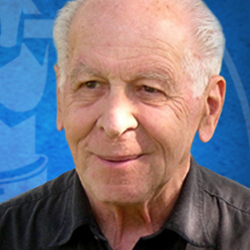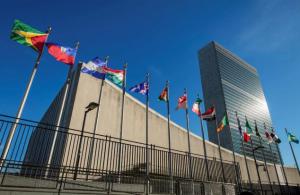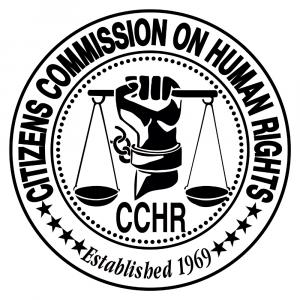The World Health Organization says that individuals in mental health crisis are at a heightened risk of their human rights being violated, including by forced admissions and treatment to psychiatric facilities, which are harmful to people’s mental health.
Research has found no improvement in patients’ mental health condition and no lower risk of suicide after forced mental health treatment; in fact, research indicates the patients face an even greater risk of suicide after coerced treatment.

Citizens Commission on Human Rights co-founder, psychiatrist Thomas Szasz, MD, wrote that increasing numbers of people, both mental health professionals and the public, acknowledge that involuntary psychiatric interventions are methods of social control, not treatment.
Recent research found no benefit to patients’ mental health or any lower risk of suicides from involuntary psychiatric treatment.
People subjected to coercive practices report feelings of dehumanization, disempowerment and being disrespected. Many experience it as a form of trauma…leading to a worsening of their condition.”
— World Health Organization
WASHINGTON, DC, US , May 10, 2023/EINPresswire.com/ -- As National Mental Health Awareness Month draws attention to the importance of good mental health, the Citizens Commission on Human Rights (CCHR) renews its call for an end to the coercive psychiatric treatments found in the field of mental health and for replacing them with practices that protect and respect fundamental human rights at all times.
State laws in the U.S. permit involuntary commitment and treatment under certain circumstances, such as when individuals appear to be a danger to themselves or others. Recent research, however, has found no benefit to patients’ mental health condition and no reduction in their risk of suicide from nonconsensual mental health treatment. In fact, a recent study indicated that patients face an even greater risk of suicide after forced admission and treatment in a psychiatric facility.
The World Health Organization (WHO) has taken a strong stand against involuntary mental health treatment, in part because of the lack of research finding any benefit to patients. In a series of guidelines issued in 2021, WHO stated that coercive mental health practices are used “despite the lack of evidence that they offer any benefits, and the significant evidence that they lead to physical and psychological harm and even death.”
WHO advised United Nations member nations, including the United States, to take bold steps to ensure that their mental health services are free from coercion, including forced drugging, the use of physical and chemical restraints and seclusion, electroshock without consent, and involuntary institutionalization.
WHO’s call for an end to involuntary mental health treatment extends to those experiencing acute mental distress. The guidelines note that individuals in mental health crisis “are at a heightened risk of their human rights being violated, including through forced admissions and treatment…. These practices have been shown to be harmful to people’s mental, emotional and physical health, sometimes leading to death.”
Explaining further, the WHO guidelines state: “People subjected to coercive practices report feelings of dehumanization, disempowerment and being disrespected. Many experience it as a form of trauma or re-traumatization leading to a worsening of their condition and increased experiences of distress.”
Today’s narrow focus on the diagnosis and drugging of individuals to suppress symptoms is a mental health approach that results in “an over-diagnosis of human distress and over-reliance on psychotropic drugs,” according to the WHO guidelines, which then lay out an alternate vision of holistic, rights-based mental health services.
Years ahead of the WHO reports, CCHR’s co-founder, the late professor of psychiatry and humanitarian Thomas Szasz, M.D., advocated an end to forced psychiatric treatment. Considered by many scholars and academics to be psychiatry’s most authoritative critic, Dr. Szasz wrote: “Increasing numbers of persons, both in the mental health professions and in public life, have come to acknowledge that involuntary psychiatric interventions are methods of social control. On both moral and practical grounds, I advocate the abolition of all involuntary psychiatry.” [1]
The Citizens Commission on Human Rights has been a global leader in the fight against the coercive and abusive use of involuntary commitments, seclusion and restraints, psychiatric drugs, and electroshock. In 1969, CCHR issued a Mental Health Declaration of Human Rights that laid out fundamental human rights in the field of mental health to ensure the right to one’s own mind and the right to be free from forced mental health treatment. [2]
CCHR was co-founded in 1969 by members of the Church of Scientology and the late psychiatrist and humanitarian Thomas Szasz, M.D., recognized by many academics as modern psychiatry’s most authoritative critic, to eradicate abuses and restore human rights and dignity to the field of mental health. CCHR has been instrumental in obtaining 228 laws against psychiatric abuse and violations of human rights worldwide.
The CCHR National Affairs Office in Washington, DC, has advocated for mental health rights and protections at the state and federal level. The CCHR traveling exhibit, which has toured 441 major cities worldwide and educated over 800,000 people on the history to the present day of abusive and racist psychiatric practices, has been displayed at the Congressional Black Caucus Foundation Annual Legislative Conference in Washington, DC, and at other locations.
[1] https://www.cchrint.org/about-us/co-founder-dr-thomas-szasz/quotes-on-involuntary-commitment/
[2] https://www.cchrint.org/about-us/declaration-of-human-rights/
Anne Goedeke
Citizens Commission on Human Rights, National Affairs Office
+1 202-349-9267
email us here
Visit us on social media:
Facebook
![]()




